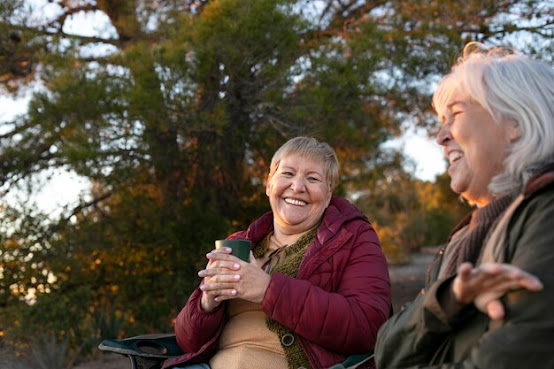What is Biological Age and How to Improve It?
Biological age is a concept that reflects how old your body seems to be, based on various factors like your lifestyle, genetics, and overall health. Unlike chronological age, which simply counts the number of years you've been alive, Biological Age provides a more nuanced understanding of your body's condition and potential longevity.
Think of it this way: Two people may be the same age according to their birth certificates, but one might have a biological age that's older or younger than the other based on their health and lifestyle choices. Factors that can influence biological age include diet, exercise, stress levels, sleep quality, smoking, alcohol consumption, and underlying health conditions.
So, how can you improve your biological age? Let's explore some strategies:
Healthy Diet
Eating a balanced diet rich in fruits, vegetables, whole grains, lean proteins, and healthy fats can provide your body with the nutrients it needs to function optimally. Avoiding processed foods, sugary snacks, and excessive amounts of unhealthy fats and sugars can help maintain a healthy weight and reduce the risk of chronic diseases associated with aging.
Regular Exercise
Engaging in regular physical activity has numerous benefits for both physical and mental health. Aim for a combination of aerobic exercise, strength training, and flexibility exercises to improve cardiovascular health, muscle strength, balance, and flexibility. Even moderate exercise, such as brisk walking or cycling, can have significant positive effects on biological age.
Stress Management
Chronic stress can accelerate the aging process and increase the risk of various health problems. Finding healthy ways to manage stress, such as meditation, deep breathing exercises, yoga, spending time in nature, or engaging in hobbies and activities you enjoy, can help lower stress levels and improve overall well-being.
Adequate Sleep
Quality sleep is essential for physical and mental health, as it allows the body to repair and regenerate cells, consolidate memories, and regulate hormones. Aim for 7-9 hours of uninterrupted sleep each night, and establish a consistent sleep schedule to support your body's natural circadian rhythms.
Avoiding Harmful Habits
Smoking, excessive alcohol consumption, and substance abuse can have detrimental effects on health and accelerate the aging process. Quitting smoking, moderating alcohol intake, and avoiding recreational drugs can significantly improve biological age and overall health.
Regular Health Screenings
Regular check-ups with your healthcare provider can help identify and address any underlying health issues early on, preventing them from worsening and potentially impacting your biological age.
By implementing these strategies and adopting a healthy lifestyle, you can effectively improve your biological age, enhance your overall health and well-being, and increase your chances of enjoying a long and fulfilling life. Remember that small changes can add up over time, so start incorporating healthy habits into your daily routine today!
Remember:
There's no single test to determine your biological age. However, some companies offer blood or saliva tests that analyze various biomarkers. While these can be interesting, a healthy lifestyle remains the key to influencing your biological age for the better.
By prioritizing a healthy diet, regular exercise, quality sleep, and stress management, you can bridge the gap between your chronological and biological age. The result? A healthier, more vibrant you, ready to take on life at any age.
Read More: Exploring the Benefits of Personalized Health Plans




Comments
Post a Comment